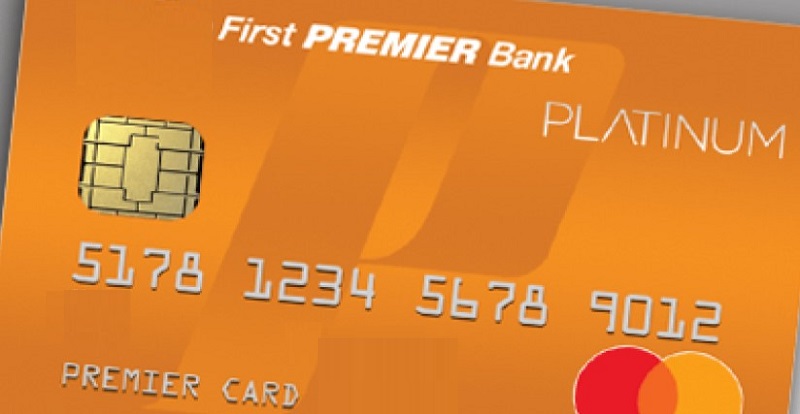Navigating the world of business financing can feel like wandering through a maze. With so many options available, how do you find the right path? A Merchant Cash Advance (MCA) can be a viable solution for some businesses, but choosing the right provider is crucial to ensure you get the best deal for your needs. In this guide, we’ll walk you through essential tips to help you select the right MCA provider in 2024, making this financial tool work for you rather than against you.
Table of Contents
| Sr# | Headings |
|---|---|
| 1 | Understanding Merchant Cash Advances |
| 2 | Why Choose an MCA? |
| 3 | Key Features to Look For |
| 4 | Assessing Provider Reputation |
| 5 | Comparing Costs and Fees |
| 6 | Reviewing Terms and Conditions |
| 7 | Customer Service and Support |
| 8 | Flexibility and Adaptability |
| 9 | Transparency of the Provider |
| 10 | Checking for Hidden Fees |
| 11 | Understanding the Repayment Process |
| 12 | Reading Reviews and Testimonials |
| 13 | How to Negotiate Terms |
| 14 | Seeking Professional Advice |
| 15 | Common Pitfalls to Avoid |
Understanding Merchant Cash Advances
Before diving into provider options, it’s essential to grasp what a Merchant Cash Advance is. Simply put, an MCA is a type of short-term loan where a lender provides a lump sum of cash in exchange for a percentage of your future credit card sales or daily bank deposits. It’s not a traditional loan, but a form of financing that’s tied to your sales revenue. Think of it like getting an advance on your paycheck; you get the money now, but you’ll repay it as a portion of your future earnings.
Why Choose an MCA?
So, why might an MCA be a good fit for your business? Unlike traditional loans, MCAs can offer quick access to capital with fewer restrictions. They are especially useful for businesses that may not qualify for traditional financing due to credit issues or those needing fast cash to seize immediate opportunities. However, it’s important to weigh the benefits against potential costs.
Key Features to Look For
When searching for an MCA provider, consider these crucial features:
- Advance Amount: How much money can you borrow? Ensure the provider offers enough to meet your needs.
- Factor Rate: This is the cost of borrowing, expressed as a multiple of the advance. Lower rates are generally better.
- Repayment Terms: Look for flexibility in how and when you’ll repay the advance.
Assessing Provider Reputation
You wouldn’t buy a car without checking the reviews, right? The same principle applies here. Research potential providers to understand their reputation in the industry. Look for feedback from other businesses that have used their services. Reliable providers should have a track record of fair dealing and transparent practices.
Comparing Costs and Fees
Cost comparison is vital. Beyond the factor rate, some providers might charge additional fees, like origination fees or prepayment penalties. Gather quotes from multiple providers and compare the total cost of each MCA. A seemingly low factor rate can be misleading if hidden fees are tacked on.
Reviewing Terms and Conditions
Carefully review the terms and conditions of the MCA agreement. This includes the repayment schedule, any clauses about early repayment, and any penalties for missed payments. Understanding these terms upfront can prevent unpleasant surprises down the road.
Customer Service and Support
Good customer service can make a significant difference. Choose a provider that offers strong support, especially if you encounter issues or need assistance. Responsive customer service can help resolve problems quickly and ensure a smoother experience.
Flexibility and Adaptability
Business needs can change rapidly, so flexibility is key. Choose a provider that can adapt to your changing circumstances. Whether it’s adjusting the repayment schedule or accommodating sudden changes in your sales volume, a flexible provider will be a better partner in the long run.
Transparency of the Provider
Transparency is non-negotiable. Ensure the provider is upfront about all costs, terms, and conditions. Hidden fees or ambiguous terms can lead to misunderstandings and financial strain. A trustworthy provider will be clear and straightforward about what you’re signing up for.
Checking for Hidden Fees
Hidden fees can sneak up on you if you’re not careful. Some providers may charge fees that are not immediately apparent. Scrutinize the contract for any additional costs that could affect the total repayment amount. Always ask for a detailed breakdown of all fees before committing.
Understanding the Repayment Process
Know how and when you’ll be making payments. MCAs are usually repaid through a percentage of your daily credit card sales or bank deposits. Understanding this process helps you plan your cash flow and ensures you’re prepared for regular payments.
Reading Reviews and Testimonials
Customer reviews and testimonials can provide valuable insights. Look for reviews from other businesses that have worked with the provider. This can give you a sense of their reliability, customer service, and overall satisfaction levels.
How to Negotiate Terms
Negotiation is often possible. Don’t be afraid to discuss terms with potential providers to see if they can offer a better deal. This might include lower fees, more flexible repayment terms, or other benefits. It’s worth asking, as providers may be willing to adjust their terms to win your business.
Seeking Professional Advice
If you’re unsure about the terms or the best choice for your business, seek advice from a financial advisor or attorney. Professional guidance can help you navigate the complexities of MCA agreements and ensure you’re making an informed decision.
Common Pitfalls to Avoid
Avoid these common pitfalls to protect yourself:
- Not Reading the Fine Print: Always thoroughly review the contract to understand all terms and fees.
- Ignoring the Total Cost: Consider all costs associated with the MCA, not just the factor rate.
- Overestimating Your Cash Flow: Be realistic about your sales projections to avoid repayment difficulties.
Conclusion
Choosing the right Merchant Cash Advance provider in 2024 involves careful consideration and research. By understanding the key features, comparing costs, and ensuring transparency, you can make an informed decision that aligns with your business needs. Remember, an MCA can be a valuable tool if used wisely, but it’s crucial to choose a provider that offers fair terms and reliable support.
FAQs
1. What is a Merchant Cash Advance?
A Merchant Cash Advance (MCA) is a type of financing where you receive a lump sum of cash in exchange for a percentage of your future sales or bank deposits. It’s a short-term financing option that’s often used by businesses with fluctuating revenue.
2. How is the cost of an MCA determined?
The cost of an MCA is typically determined by a factor rate, which is a multiplier applied to the advance amount. Additional fees and costs may also be involved, so it’s essential to review the total cost carefully.
3. What should I look for in an MCA provider?
Look for a provider with a good reputation, transparent terms, reasonable costs, and responsive customer service. Comparing multiple providers and reading reviews can help you find the best option for your needs.
4. Can I negotiate the terms of an MCA?
Yes, negotiating the terms of an MCA is often possible. Discussing terms with potential providers can help you secure better rates or more favorable repayment conditions.
5. Are there any hidden fees associated with MCAs?
Some MCA providers may have hidden fees. It’s crucial to read the contract thoroughly and ask for a detailed breakdown of all costs to avoid unexpected charges.




